Go inside Portland’s formerly secret cargo bike factory – BikePortland
It’s largest cargo bike manufacturing facility in North America that you’ve likely never heard of.
After years of avoiding media attention, the secret is finally out as Icicle Tricycles celebrates its 25th anniversary and settles into their Old headquarters. I got a tour of their 30,000 square-foot factory at the end of Southwest 4th Avenue on Wednesday and learned more about this burgeoning business that sells hundreds of cargo trikes a year to customers all over the globe.
Icicle Tricycles is owned by Ryan Hashagen, a relatively private guy who’s well-known by insiders for his behind-the-scenes activism on a number of local issues and who is now, somewhat reluctantly, coming out of his shell. I first met Hashagen when he moved his pedicab business from Seattle to Portland in 2008. Almost immediately, Hashagen he himself into various advocacy campaigns; first he fought for better pedicab regulations, then he joined Portland’s bicycle business and disaster relief movements. But it was his work with Better Block PDX, the nonprofit that re-imagines public space with temporary tactical urbanism interventions and the driving force behind the Naito Parkway protected bike lane, that thrust Hashagen into the spotlight.
Hashagen’s numerous advocacy roles (he’s also a major player in the Old Town Community Association and recently won a seat on the board as its business representative) is why Icicle Tricycles has kept such a low profile. His work on sometimes sensitive issues caused him to worry that his business might get caught up in local political debates. But with the growth of his business and its quarter-century milestone, his new role in Old Town, and a position as adjunct faculty instructor at Portland State University, he’s taken cues from new employees who’ve urged him to open up.
2025 marks a new chapter for Hashagen and his business. I’ve bugged him for years to let me do a story about his shop, but he never agreed to let me in. When I got an email from his Sales and Marketing Manager Graham Adams about their 25th anniversary, I (jokingly) said I wouldn’t do the story unless I got a factory tour. I was shocked when he obliged. My time there Wednesday felt a bit like opening the gates of Willy Wonka’s chocolate factory.
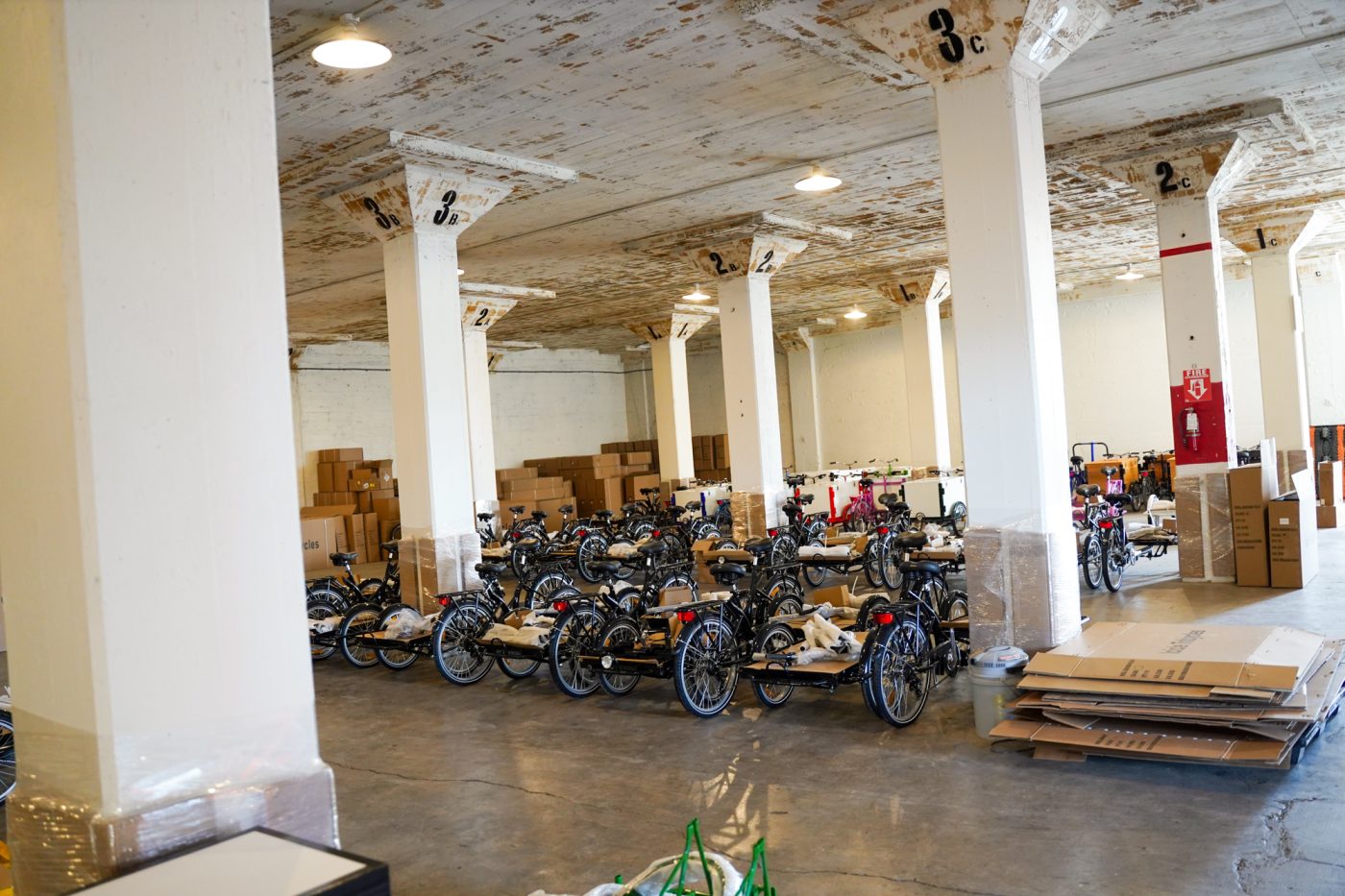
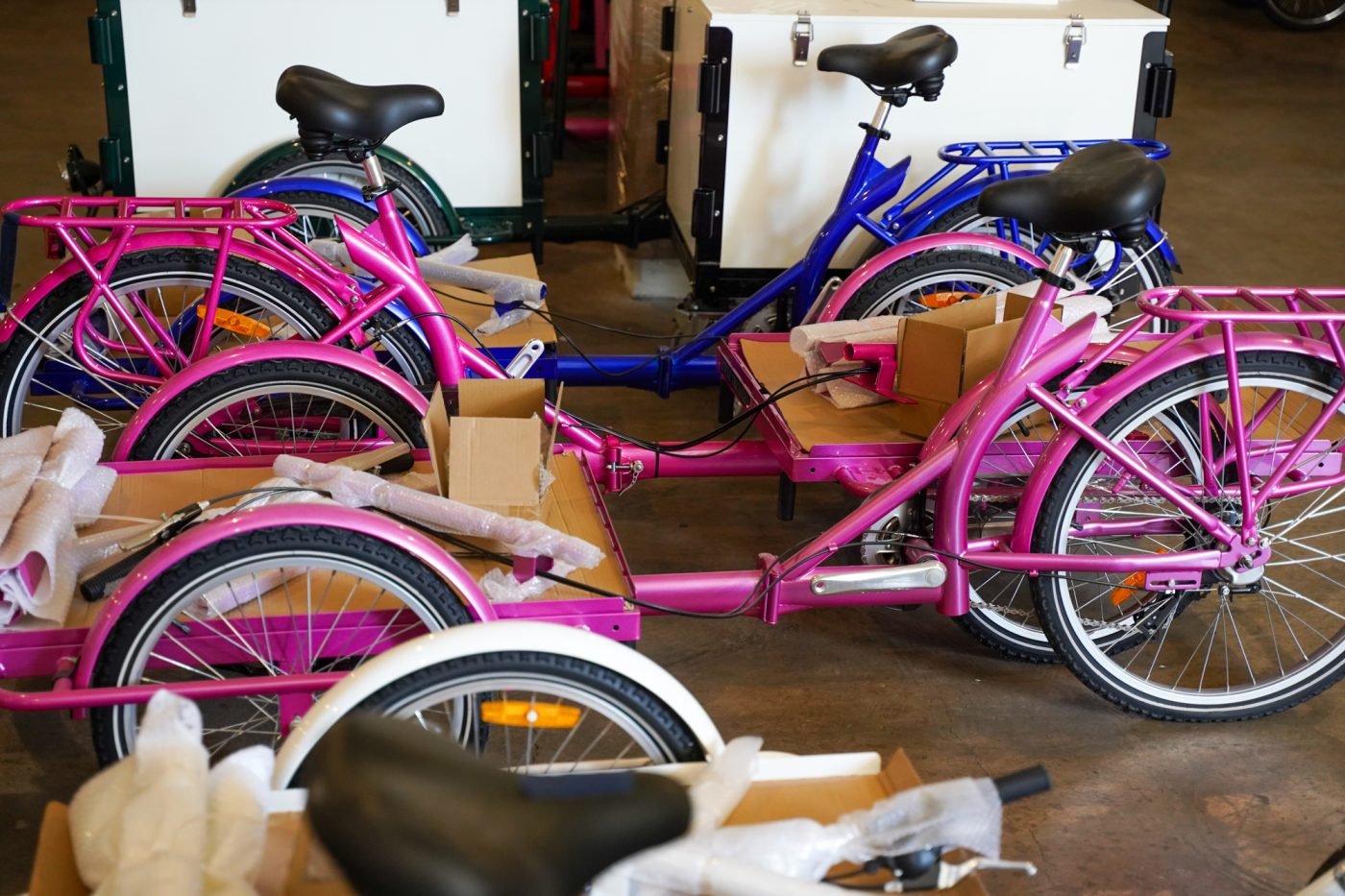

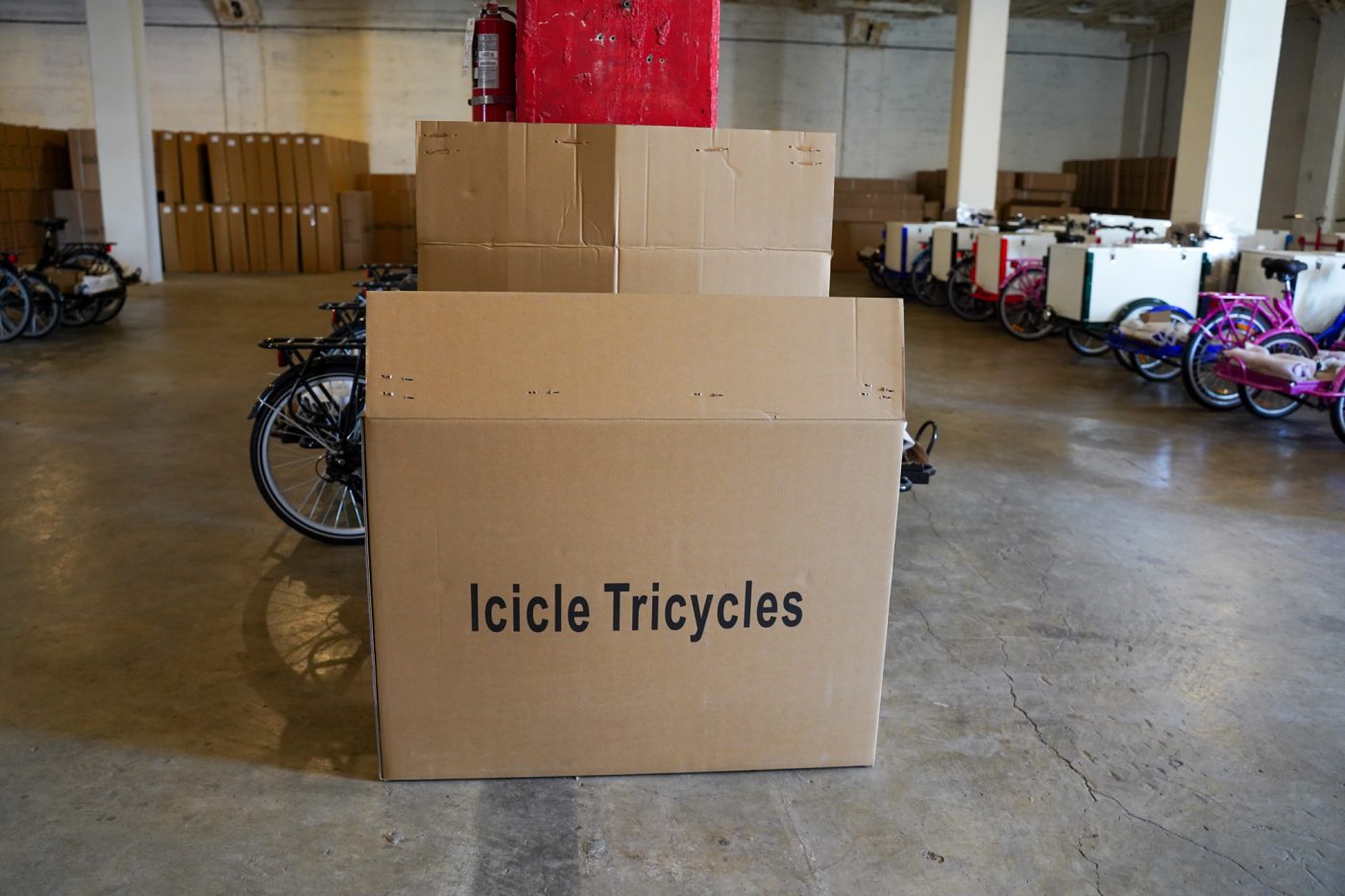

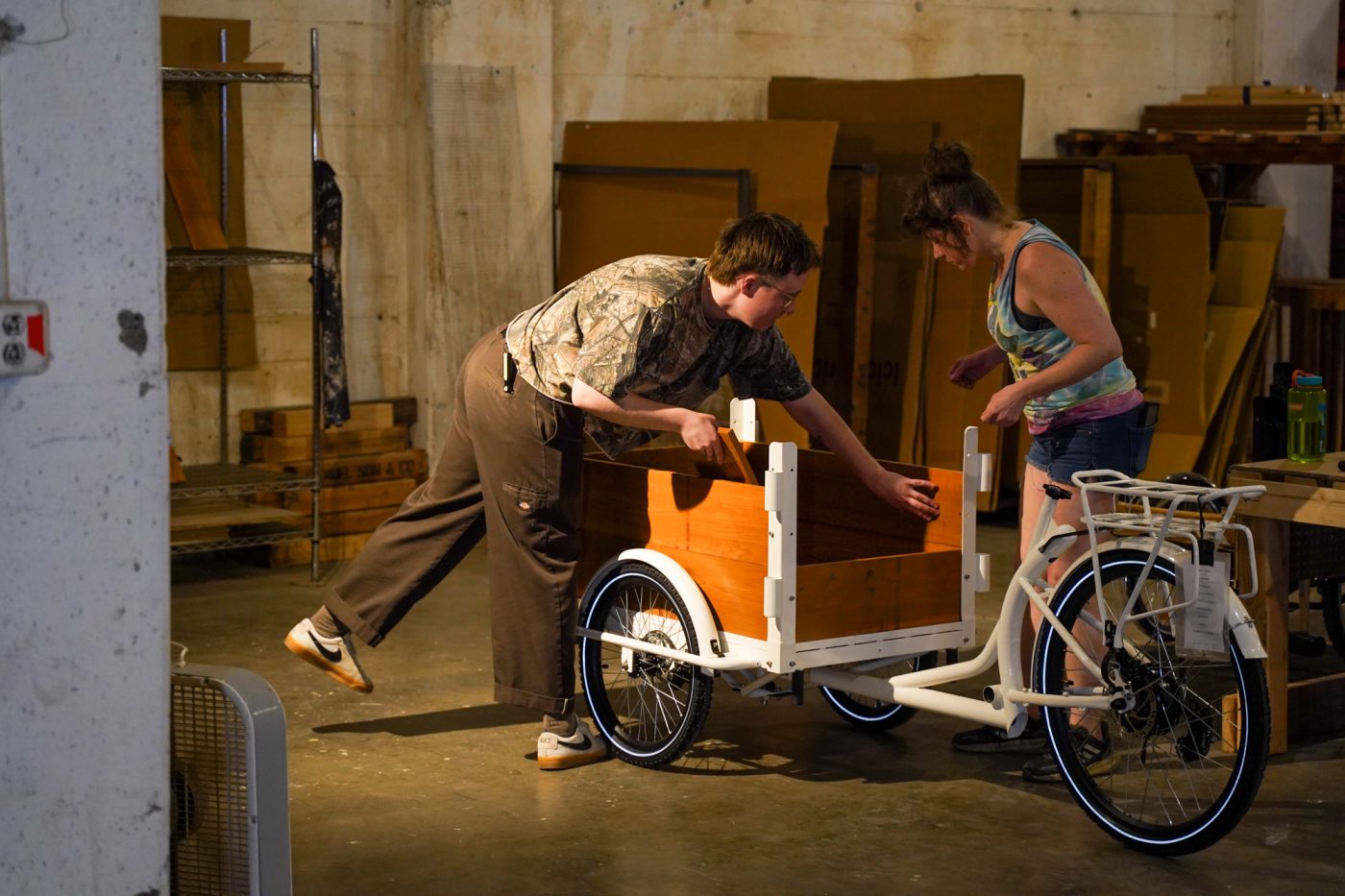
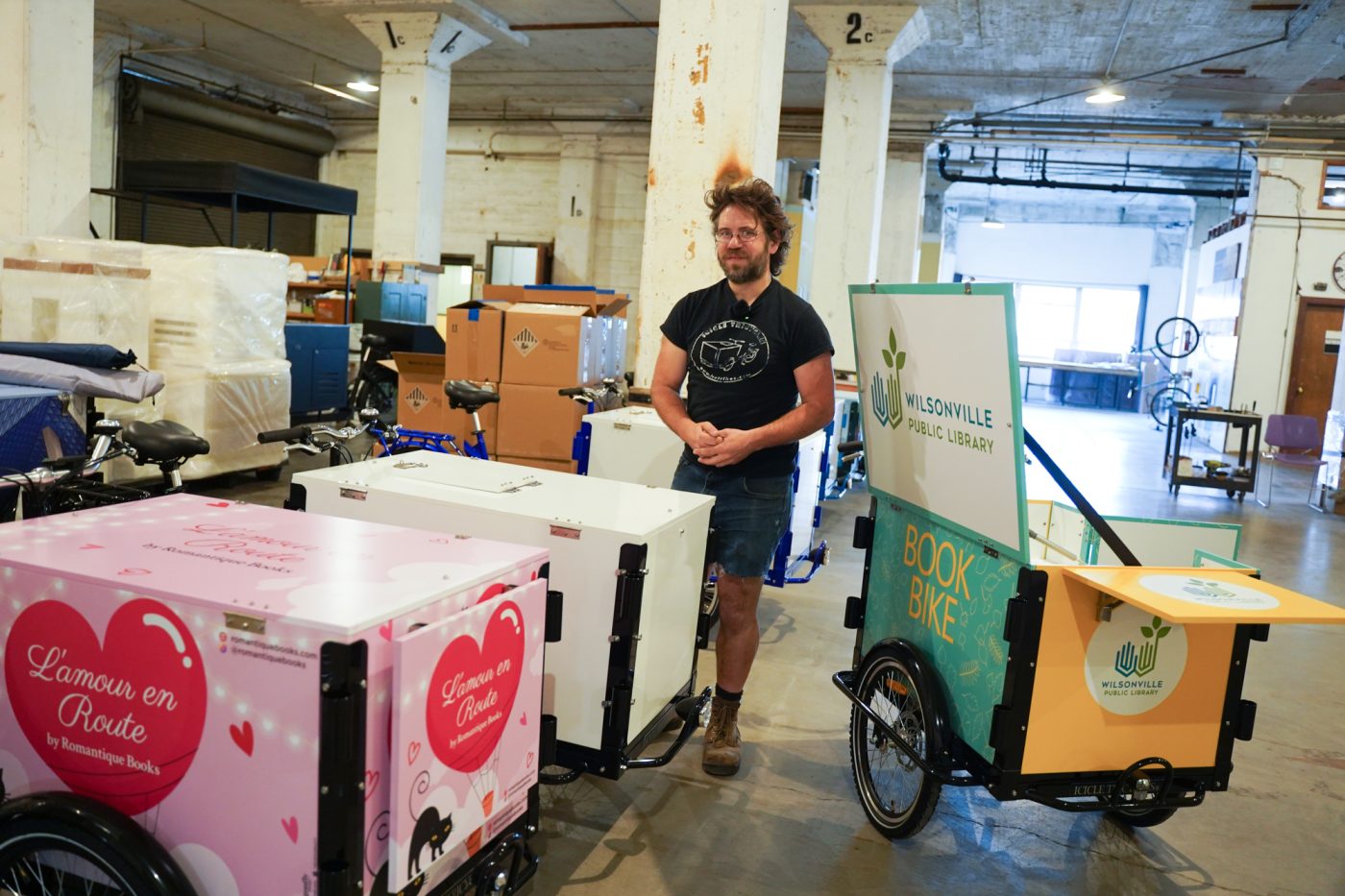
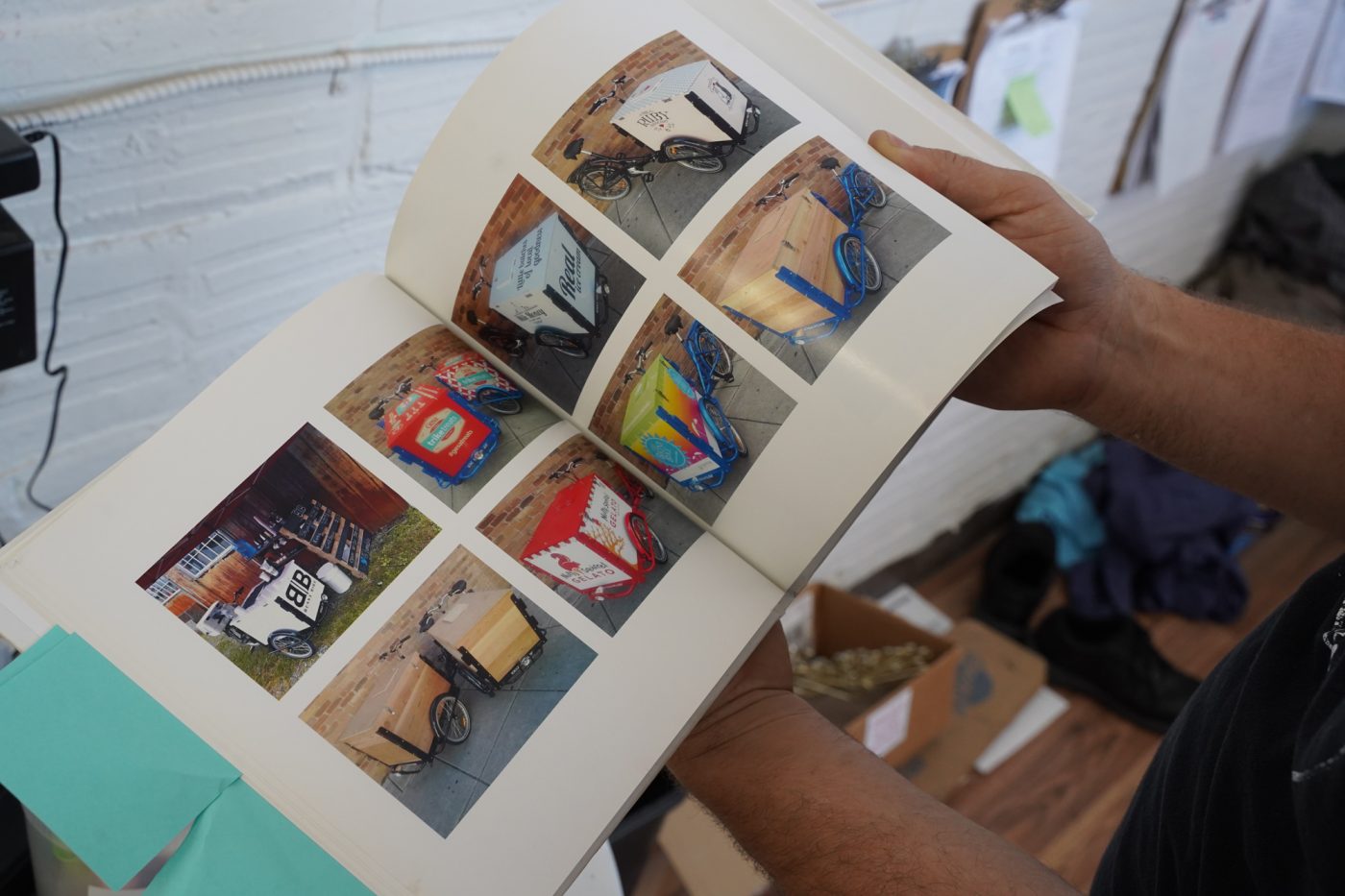
“This is our tricycle factory,” Hashagen beamed as he swept his hand across the air of a cavernous, 100-year old warehouse on NW Hoyt that used to house, fittingly, an ice factory.
Hashagen’s business origin story began with his great uncle who ran a bike messenger service in Salem, Oregon in 1935. “He would do shopping trips, deliveries and run errands for people by bike for 10-cents a trip,” Hashagen shared, as he showed me a vintage billboard advertisement for “Red Top Shoppers Service”.
From one old trike he found in the backyard of someone’s house while hitchhiking through the Yukon in 2000, to an entire fleet of trikes that sit in orderly rows in his warehouse today, Hashagen has built Icicle Tricycles into business that employs nearly a dozen people and boasts clients as diverse as a small nonprofit bookstore to the National Football League and just about everything in between.
Only 3% of the company’s orders come from Oregon and one in five trikes are shipped internationally. A whiteboard in the sales office listed about 60 current and pending orders from cities across the U.S. and Canada (where he maintains a second office).
Walking with Hashagen around the factory comes with a running dialogue of the many trike customers they’ve worked with:
“This one’s a romantic book bike, so it’s selling romance novels. These are for San Diego Premier Lacrosse League who will use them for promotional activities. This one is going to a community banana stand that will hand out free bananas in Bellevue, Washington. We build trikes for Coachella [Music Festival], the Country Music Awards, and we also just did nine trikes for the Super Bowl recently for Cheetos and Fritos.”
Then there’s the business that uses one of trikes to sell caviar, there’s been one used as a menstruation information station, and even one that was shipped to Fort Saskatchewan, Canada to serve as a job development tool for an indigenous community in a rural village that has no road accessibility.
There are popular categories of trikes that make up a large chunk of the business. The big three are: book trikes for libraries; tourist information kiosk trikes that offer free maps and travel info; and a new segment Hashagen is chasing — clean-up trikes used by urban downtown associations (and nonprofits like Ground Score in Portland that I profiled last year) that come with pressure-washers and trash clean-up tools.
Hashagen lights up when he tells me about a popular library book push cart model. “This is for service inside of libraries, schools, retirement homes — bringing literacy outreach programs to individuals and being able to do pop-up storytime in the park, or going in and lending out books after bingo at a retirement home.” One of Icicle Tricycles favorite customers is Portland-based Street Books, a nonprofit that serves people who are homeless.
The company offers a truly soup-to-nuts service. The trikes themselves are a design Hashagen and his team have refined over two decades. They are built for Icicle Tricycles and then outfitted with custom cargo boxes, paint schemes, and graphics that are all completed in their shop. The factory has a woodworking area for carts that get car boxes with cedar wood panels, there’s a full print studio for the graphics, a shipping station, a laser etching booth for the “Icicle Tricycles” plaques fitted to each trike, an assembly and production area, and an insulation station that builds the walls of the boxes.
Many of the trikes represent an entrepreneurs first crack at owning their own business, since the low barrier to entry is a major selling point. A complete trike outfitted with a tap to dispense beer (or some other beverage), can be business and sales-ready for about $8,000.
“We’ve seen a dozens of our carts move from a cart to brick-and-mortar,” Adams, the sales guy, shared. “One of our favorites, the Nonbinarian Bookstore in New York City, started out as a library trike just last fall, then moved into a brick-and-mortar space. Now the cart lives in front of their space, and it still attracts attention and they use it to do mobile outreach.”
That attractiveness is key, Hashagen says. “Our trikes are really great at being the center of attention. They’re just so cute that they just draw people’s curiosity.”
It’s that same curiosity that built Hashagen’s business from its early days. He recalled a story when he was out selling treats and got a call from Cirque du Soleil. “They said, ‘Hey, can we buy a trike from you?’ and I was like, ‘No, I’m too busy selling ice cream right now!’”
Fast forward to today and Hashagen is too busy selling trikes to sell ice cream. (Actually, knowing him, he probably does still work an ice cream trike now and then.)
The next 25 years for Icicle Tricycles will likely see the company expand into new territory, and become a more well-known part of the community. The recent addition of electric-assist models will open up new commercial possibilities, and Hashagen says they’re launching a sign shop to design and fabricate signs for other businesses. That’s an ironic twist for a guy that intentionally left a sign off all his former buildings. It’s part of a shift for Hashagen and Icicle Tricycles, where his business and advocacy finally, fully connect.
Because for Hashagen, the trike business isn’t just about the business. It’s about how the act of using them impacts streets and other public spaces.
During my visit at the factory, he told me a story about being a young activist and attending Critical Mass rides. “It felt kind of confrontational,” he recalled. “And then later on in the day I’d be riding my tricycle and having these same people that we were frustrating on the road with our bikes, be the folks that were my potential customers and people that I wanted to engage with. And I started realizing the possibilities of how tricycles can transform public right-of-way — and how tricycles promote interactivity and commerce in the public right-of-way. We can’t just abandon our streets to be motor vehicle thoroughfares. Tricycles allow for people to do business, to interact, to invite this kind of engagement among people in a way that motor vehicles can be pretty threatening to — and so that, to me, was what was the most enticing part about tricycles.”
Share this content:
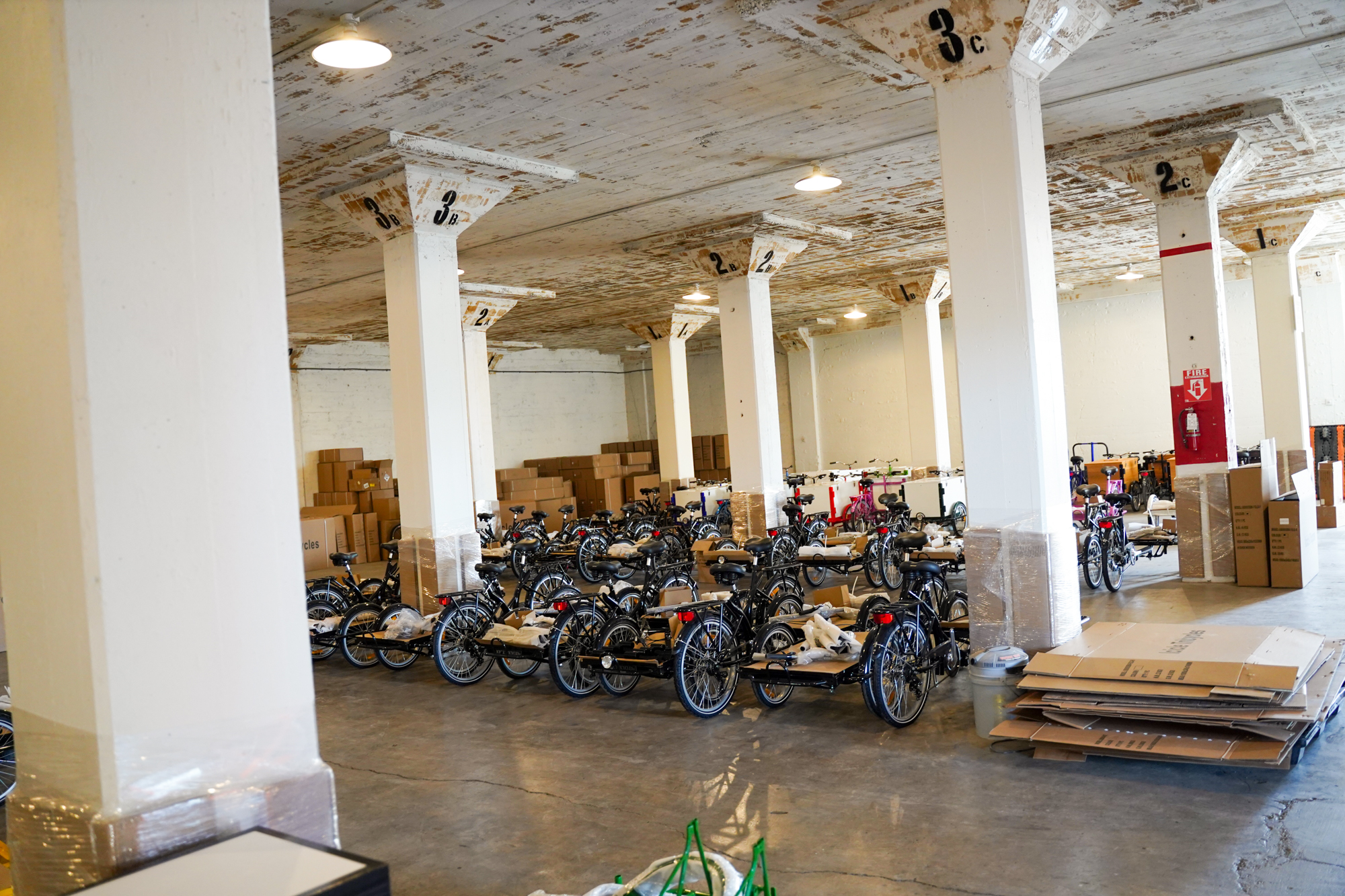








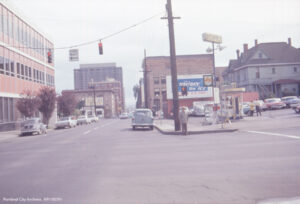




Post Comment